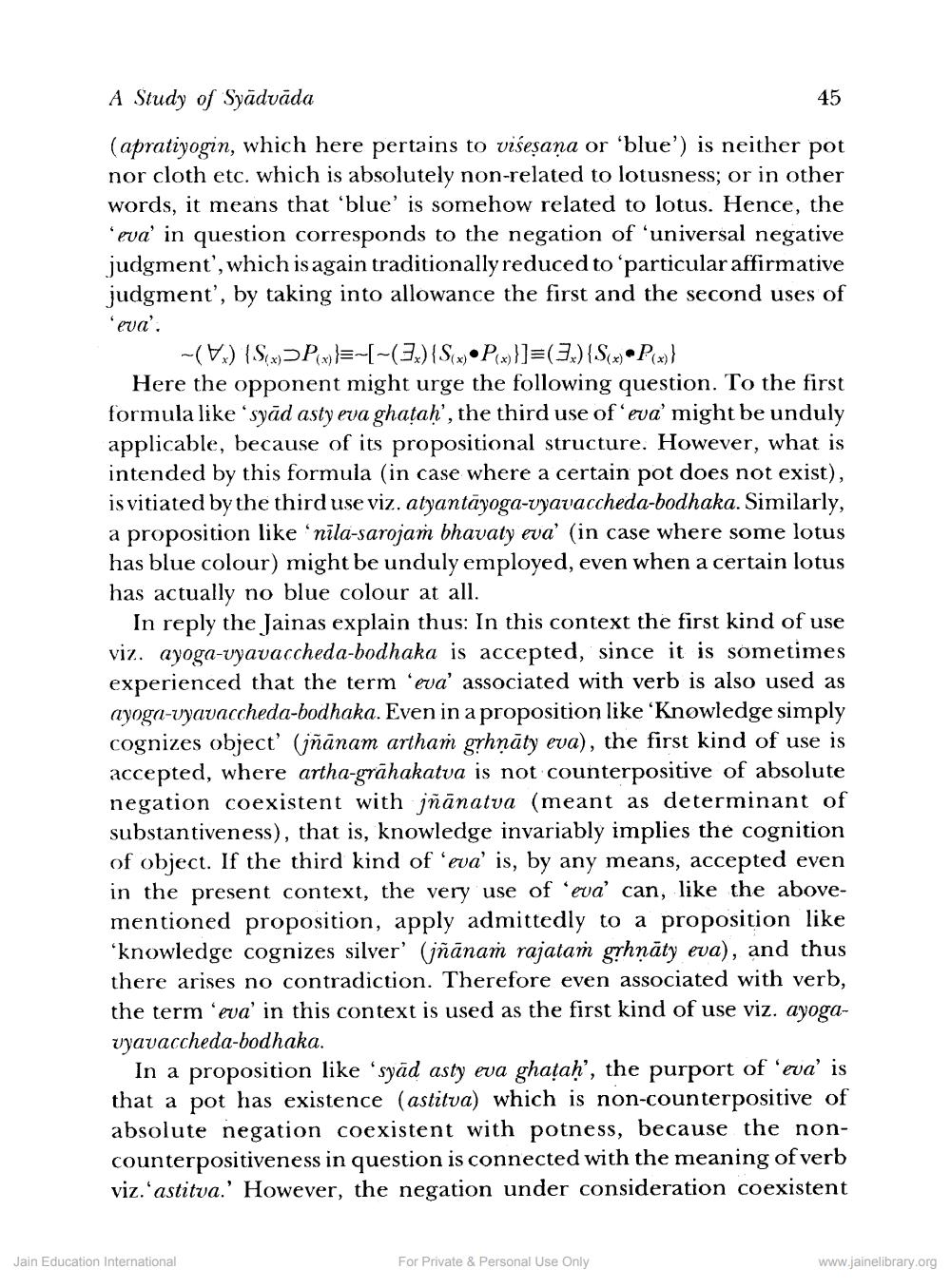________________
A Study of Syādvāda
45
(apratiyogin, which here pertains to višeşana or 'blue') is neither pot nor cloth etc. which is absolutely non-related to lotusness; or in other words, it means that 'blue' is somehow related to lotus. Hence, the *eva in question corresponds to the negation of 'universal negative judgment', which is again traditionally reduced to particular affirmative judgment', by taking into allowance the first and the second uses of 'eva'.
-(Vx) (SxPx)}=-[-(3x) {SxPx)}]=(3x){S(x)*P(x)} Here the opponent might urge the following question. To the first formula like 'syād asty eva ghatah', the third use of 'eva' might be unduly applicable, because of its propositional structure. However, what is intended by this formula (in case where a certain pot does not exist), is vitiated by the third use viz. atyantayoga-vyavaccheda-bodhaka. Similarly, a proposition like 'nila-sarojam bhavaty eva (in case where some lotus has blue colour) might be unduly employed, even when a certain lotus has actually no blue colour at all.
In reply the Jainas explain thus: In this context the first kind of use viz. ayoga-vyavaccheda-bodhaka is accepted, since it is sometimes experienced that the term 'eva' associated with verb is also used as ayoga-vyavaccheda-bodhaka. Even in a proposition like Knowledge simply cognizes object' (jñānam artham gyhņāty eva), the first kind of use is accepted, where artha-grāhakatva is not counterpositive of absolute negation coexistent with jñānatva (meant as determinant of substantiveness), that is, knowledge invariably implies the cognition of object. If the third kind of 'eva' is, by any means, accepted even in the present context, the very use of 'eva' can, like the abovementioned proposition, apply admittedly to a proposition like ‘knowledge cognizes silver' (jñānam rajatam g?hņāty eva), and thus there arises no contradiction. Therefore even associated with verb, the term 'eva' in this context is used as the first kind of use viz. ayogavyavaccheda-bodhaka.
In a proposition like 'syäd asty eva ghațaḥ', the purport of 'eva' is that a pot has existence (astitva) which is non-counterpositive of absolute negation coexistent with potness, because the noncounterpositiveness in question is connected with the meaning of verb viz.'astitva.' However, the negation under consideration coexistent
Jain Education International
For Private & Personal Use Only
www.jainelibrary.org




